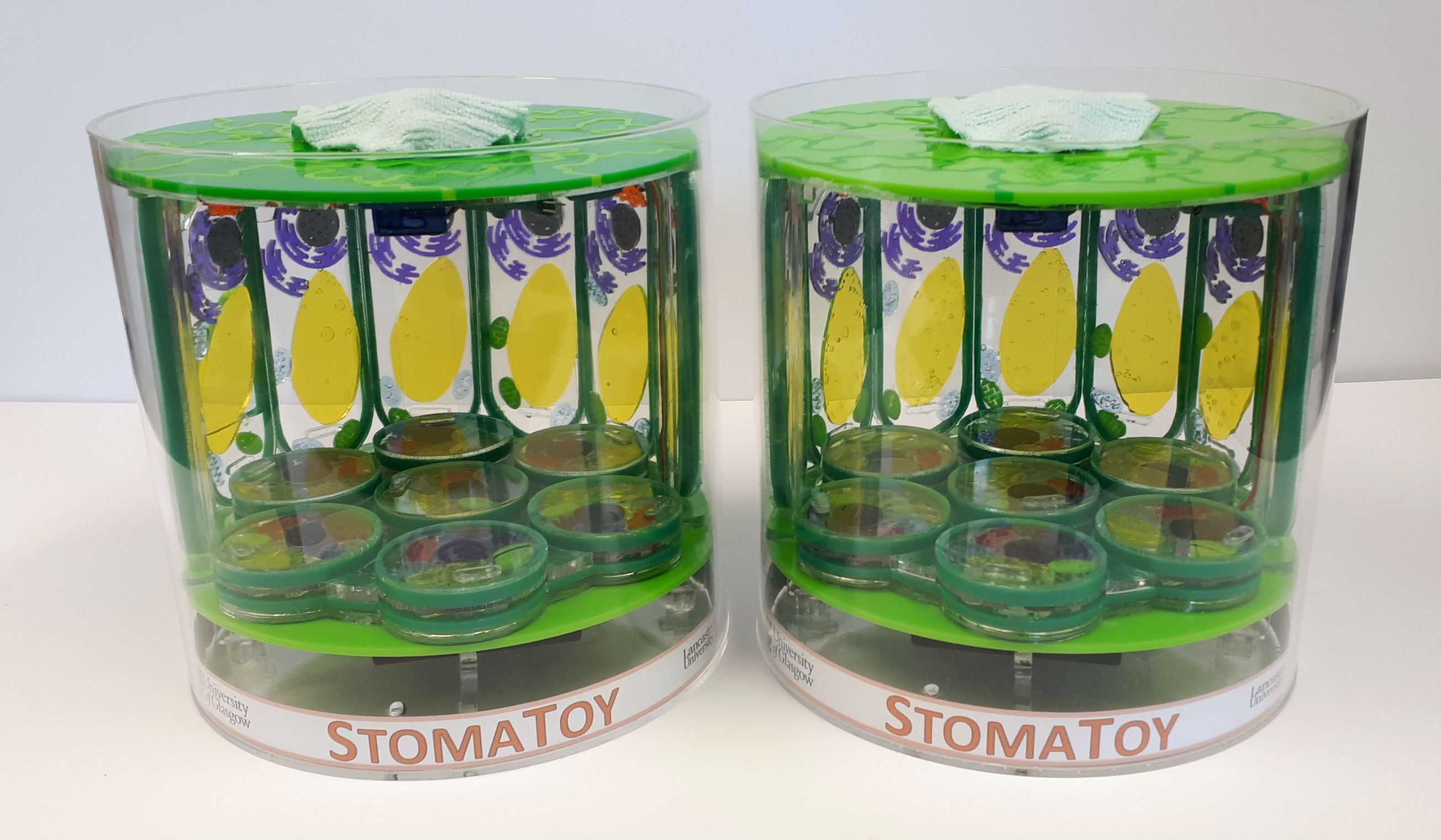Toy shows off plant defences

Lancaster computer scientists have developed a fun interactive toy to demonstrate a plant’s defences against pathogens.
Dr Abe Karnik and Taylor Woodcock of Lancaster University’s School of Computing and Communications, in collaboration with Plant Scientists at the University of Glasgow, have created the StomaToy– an interactive educational toy for children. The StomaToy represents stomatal behaviour on the leaves of plants.
The toy features an opening aperture at the top, which opens when light shines on a sensor. This replicates what happens when a stomata opens on the underside of a leaf to regulate the temperature of a plant or exchange CO2/water vapour to enable photosynthesis.
However, a plant’s stomata is also an entry point for harmful pathogens. When pathogens enter through the stomata, cells are alerted to their presence and chemicals are sent by the plant to fight off the pathogen.
The researchers have illustrated this process by having lights within the toy change colour from blue to red when a magnet – representing a pathogen – enters the inside of the toy.
Dr Abe Karnik, a Lecturer in Human Computer Interaction, said: “We were asked to help use technology in a fun way to illustrate the role of the stomata and how a plant can defend itself from pathogens. We created a complete representation of a cross section of plant leaf showing the mesophyll cells in detail. Using servo-motors and links, we created a working model of the stomatal aperture as well as illustrated the chemical defence process with lighting.
“We hope that young people enjoy interacting with the toy and that it helps to teach them about the fascinating role of the stomata and how plants are able to detect and fight off harmful bacteria.”
As well as sensors, lights and servos the toy also makes use of the BBC micro:bit, a small computing device which runs on an operating software developed at Lancaster University.
The StomaToy is part of a project led by plant physiologists at the Karnik Lab at the University of Glasgow and funded by the Royal Society and is set to appear at the Glasgow Science Festival in June.
People can follow on Twitter at @Stomatal_2019

Two StomaToys
Back to News
